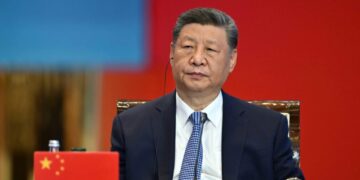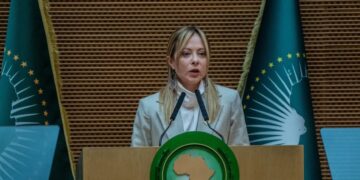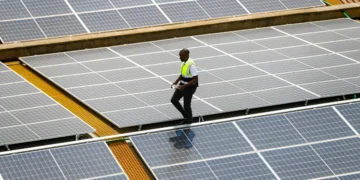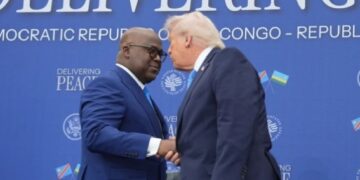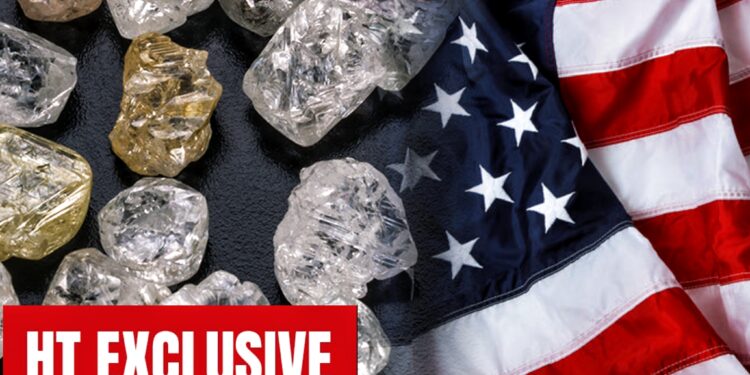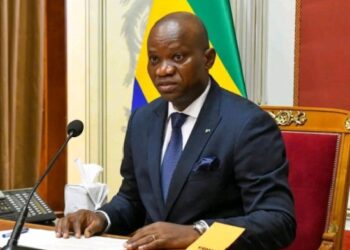By Emmanuel Nduka Obisue
Faced with declining diamond revenues and a looming economic squeeze, Botswana is nearing a deal with Washington that would remove the 15% US tariff on its diamond exports in return for granting American firms priority access to its mineral resources.
But behind the negotiations lie urgent fiscal pressures, a strong push for local value-addition, and a recalibration of Botswana’s relationship with its most lucrative export.
What’s Forcing Botswana’s Hand?
President Duma Boko made his position unmistakably clear on June 5, 2025, during a public address in Ramotswa, a village southeast of Gaborone. “No diamond will leave this country raw. All will be cut and polished here. We are moving to a point where no mineral will leave this country without being processed,” he declared.
Boko’s statement spotlighted the government’s determination to internalize more of the mineral value chain. It also marked a defining moment in Botswana’s economic direction as the country navigates global headwinds affecting the diamond trade.
Here are a few reasons why Botswana is swapping its mineral resources for a US tariff fix:
• Weak Global Demand, Falling Prices
Debswana, Botswana’s dominant mining joint venture, has cut production and paused mines in response to persistent low demand, a slump Reuters says has already driven deep revenue declines and helped cause a GDP contraction. Botswana gets a large share of its foreign exchange and fiscal receipts from diamonds, hence, the decline has immediate fiscal consequences.
• US Reciprocal Tariffs Created Urgency
Washington placed Botswana on its country-specific “reciprocal tariff” list. Donald Trump’s White House order shows a 15% tariff rate applied to Botswana as the reciprocal tariff baseline, a policy that pushed Botswana to negotiate quickly to protect access to the US market.
• Risk To Credit And Fiscal Stability
Rating agencies warn that prolonged weakness in diamond revenues and falling foreign reserves are eroding Botswana’s fiscal buffers. A recent S&P/credit research note lowered the outlook and flagged the country’s narrow dependence on diamonds as a key vulnerability. That outlook further magnifies the political pressure to restore preferential market access.
What Botswana Is offering, And Why?
Sources inside Gaborone report that Boko’s government has floated a package that would give US companies priority or early access to critical minerals and investment opportunities as part of a broader “Strategic Bilateral Engagement” designed to get tariffs lowered. Locally that bargain is intended to accomplish two goals. Firstly, to remove or reduce the punitive trade wedge hurting diamond exports into the US, and secondly to attract US capital, technology and downstream investment that could help build domestic processing. But the proposal has provoked debate at home about transparency and sovereignty.
Either way, Botswana’s stated policy aims to keep value onshore. President Boko has publicly linked tariff talks to an acceleration of a domestic beneficiation policy. “Processing of these minerals must take place in-country … so that value is extracted,” he told the BBC, signalling a government priority to cut and polish more stones locally and expand downstream activity. That ambition both strengthens the bargaining position and responds to longstanding domestic demands to capture more value from Botswana’s resources.
The Trade-Offs And Political Risk
Local commentators and opposition voices warn that granting preferential access risks ceding leverage over strategic resources and could undermine existing local beneficiation efforts unless terms protect domestic value-addition. Independent outlets in Gaborone have flagged concerns that strategic talks moved quickly and with limited parliamentary oversight, creating political heat even as negotiators seek to blunt the immediate economic shock.
Why Local Processing Is No Longer Optional
Beyond the immediate tariff issue, Botswana is pushing a longer-term economic strategy for maximum beneficiation. Local officials argue that value addition, cutting, polishing, and refining minerals locally, keeps more wealth in Botswana through employment, skills development, and a stronger tax base.
Additionally, local business leaders and civil society are pressing the government to ensure that any deal with foreign firms does not undercut domestic beneficiation efforts. They want guarantees that infrastructure, labour training, and regulatory oversight are strengthened in parallel.
What Botswana Hopes To Achieve
The country envisage that removing the US tariff would revive demand, helping producers stay competitive, preserving jobs, and boosting state revenue. It would also encourage moving from exporting unprocessed stones toward cutting, polishing, and possibly more advanced downstream activities.
Diversification and sustainability is also a foresight. Reducing dependence on raw diamonds over time, building capacity, and cushioning the economy against global price swings.
Botswana’s bid to trade mineral access for US tariff relief is more than a negotiation over duties. It is a strategic turning point. In one move, the government seeks to ease short-term economic pain, secure foreign investment, and accelerate structural transformation. This would be a shift that could determine whether Botswana continues to export raw stones or begins exporting refined, home-grown value.



















